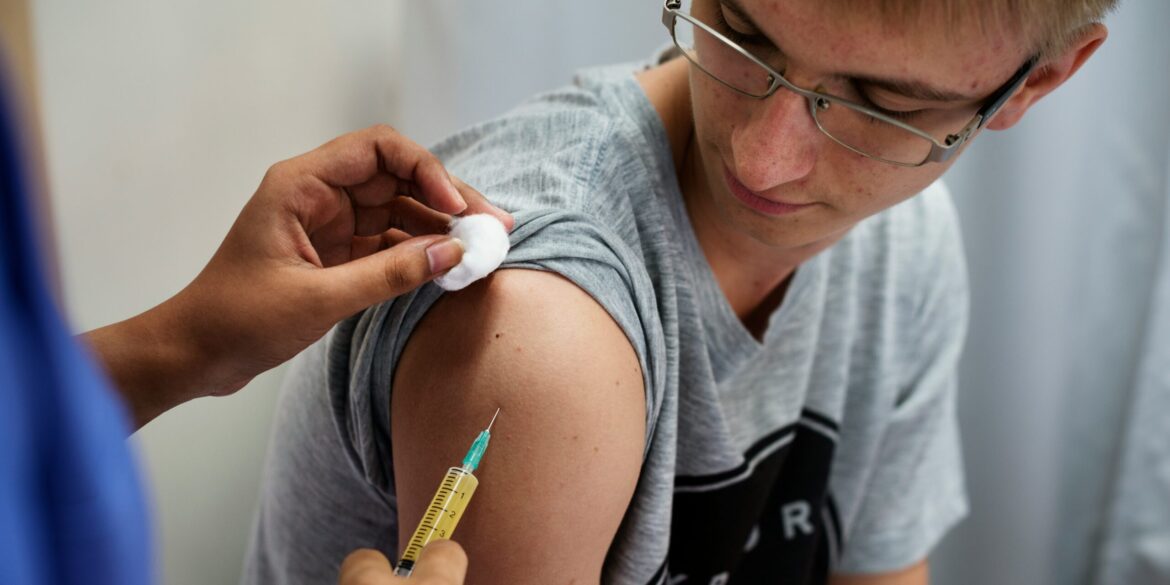Washington, D.C., August 16, 2025 — The global effort to expand access to vaccines against mpox took another step forward as Bavarian Nordic announced it has formally submitted clinical trial data to the European Medicines Agency (EMA), seeking authorization for its MVA-BN vaccine—marketed as Jynneos in the United States and Imvanex in Europe—for use in adolescents aged 12 to 17. This marks an important milestone in extending protection to younger populations at a time when vigilance against mpox remains a key public health priority.
The application is supported by data from a trial involving more than 500 participants, including 315 adolescents and 211 adults between 18 and 50 years of age. Results showed that adolescents produced immune responses comparable to those seen in adults after receiving two standard doses of the vaccine. Importantly, the safety profile was similar across both groups, with no new concerns raised in younger participants. These findings give regulators confidence that the vaccine, already in use for adults, can be safely and effectively administered to teens as well.
Read Also: https://goodmorningus.com/wegovy-and-the-future-of-childhood-obesity-treatment/
Bavarian Nordic’s submission is part of a broader global strategy to close immunization gaps. Although mpox has primarily affected adults in past outbreaks, health experts warn that adolescents remain at risk, particularly in areas where the virus is endemic. Extending vaccine approval to this age group could not only provide direct protection but also slow transmission chains within communities. Regulators in Europe are expected to review the data over the coming months, and a decision could significantly influence other markets, including the United States, where health authorities are also evaluating expanded use of the vaccine.
The company’s ambitions extend further still. Bavarian Nordic has confirmed plans to launch a pediatric study later in 2024 that will assess the safety and efficacy of the vaccine in children aged 2 to 12 years. That trial, expected to take place in the Democratic Republic of the Congo and Uganda, will enroll several hundred participants and is backed in part by the Coalition for Epidemic Preparedness Innovations (CEPI). If successful, it could set the stage for eventual approval of the vaccine in much younger children, expanding global access to protection against mpox.
The push to expand vaccine availability comes in the wake of heightened vigilance around mpox, which has continued to circulate in parts of Africa and re-emerged in clusters across Europe and North America in recent years. Though public health interventions have limited the scale of outbreaks, the virus remains a threat, particularly in regions where surveillance and medical infrastructure are under strain. Experts argue that extending vaccine use to broader age groups is a critical step in ensuring that future outbreaks can be controlled quickly and equitably.
Health officials have highlighted that the effort to extend vaccine coverage also reflects lessons learned during the COVID-19 pandemic. Rapid global collaboration, early regulatory engagement, and an emphasis on equitable access are now seen as essential elements of preparedness. By submitting data for adolescent use and preparing for pediatric studies, Bavarian Nordic and its international partners are positioning the mpox vaccine as a cornerstone of prevention strategies for years to come.
If approval is granted, adolescents in Europe could become eligible for vaccination as early as next year, joining adults who already benefit from the vaccine’s protection. Broader access could prove especially important in outbreak-prone regions, where stopping transmission among younger populations may help reduce overall case numbers. For Bavarian Nordic, the expansion also underscores the strategic importance of its MVA-BN platform, which has become a key tool in both smallpox and mpox preparedness efforts.
The ongoing regulatory process will be closely watched by governments, health agencies, and advocacy groups. While the data presented to the EMA is promising, the final decision will depend on continued evaluation of trial results, post-market surveillance in adults, and the readiness of health systems to expand immunization programs to adolescents. For now, the announcement signals steady progress toward broader protection against a disease that continues to pose public health challenges globally.

